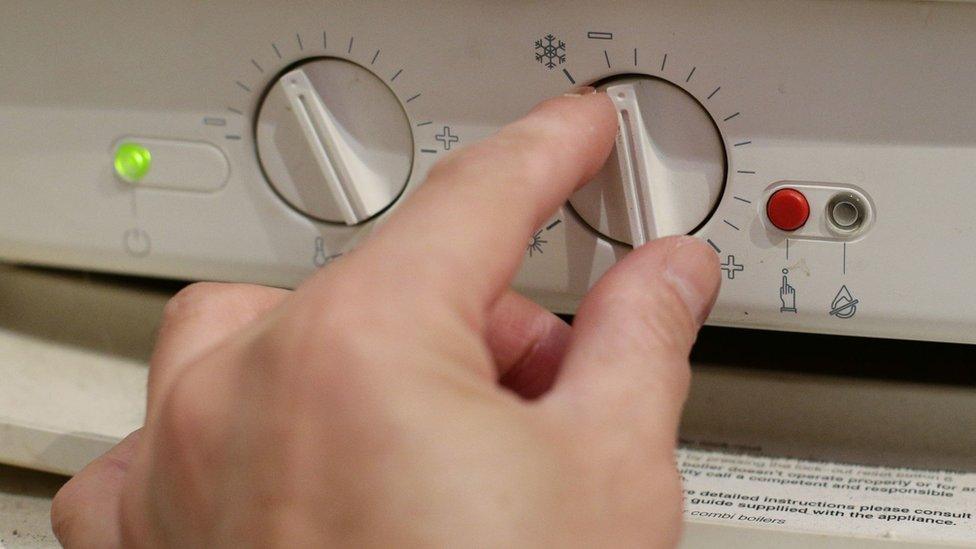Wood burning stoves - have they been banned in Scotland?
- Published
- comments
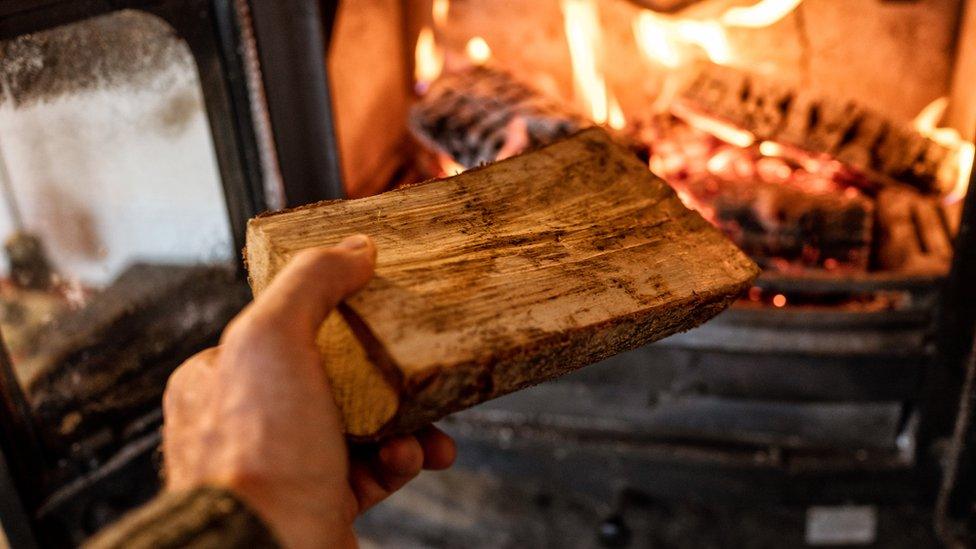
New rules came into place at the start of April that broadly ban burning stoves from new-build homes
The Scottish government will review a new law on wood burning stoves after calls for a rethink.
New regulations came into force in April that broadly banned burning stoves in new-build homes.
The new rules have no impact on properties that already have the appliances.
But almost two months later, ministers are now looking to "adapt" the regulations to "suit the differing needs of urban and rural areas".
The government previously said heating homes contributed to about a fifth of Scotland's carbon emissions, and that needed to be tackled.
What are the new regulations?
Wood burners are appliances such as wood burning stoves, fireplaces, and firepits that are used to burn wood in our homes or gardens, usually for heating or cooking.
From 1 April, new homes built in Scotland, external will not be allowed to use direct emission heating systems such as oil and gas boilers, and bioenergy sources which includes wood and log burning stoves.
New properties will need to use "climate-friendly alternatives" such as heat pumps or heat networks.
The rules also apply to those looking to convert an existing property. A conversion relates to changing the occupation or use of a building, for example turning an attic into a bedroom, and is different from making alterations or adding an extension.
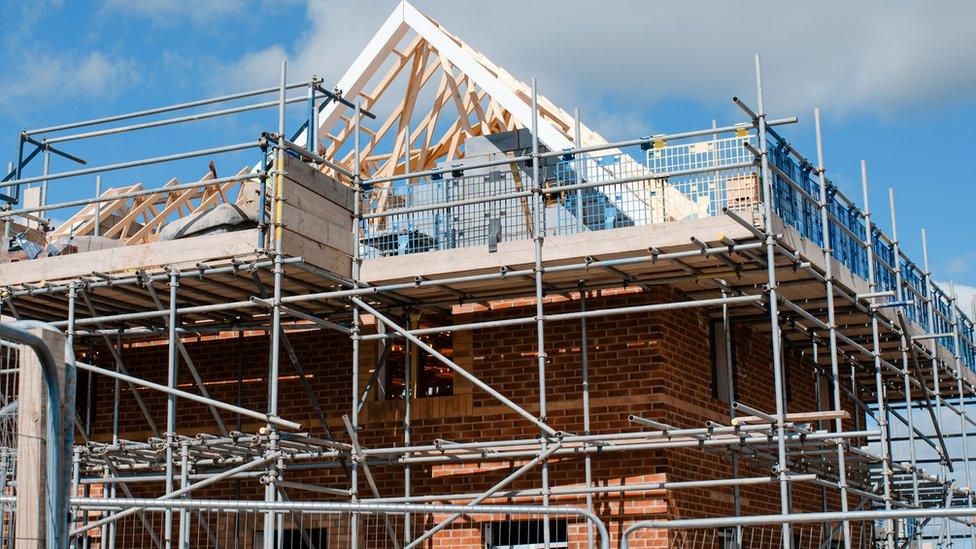
Newly-built houses will not be allowed to have wood burning stoves installed
The new regulations have no impact on homes that already have a wood burning stove installed however the government is developing proposals for existing buildings, external.
There are some exemptions including if the heating system is being installed as an emergency heating system or for the purpose of frost protection.
Environmental impact
The Scottish government said the new regulations were introduced in an effort to reduce the country's carbon emissions.
Its independent advisers on the Climate Change Committee recently warned that a flagship target of reducing greenhouse gas emissions by 2030 was unachievable.
However the government is still "fully committed" to meeting a target of net zero emissions by 2045.
A spokesperson said: "Heating our homes and buildings represents about a fifth of Scotland's carbon emissions so tackling the climate emergency requires us to address these emissions.
"The changes mean that new homes and buildings do not contribute to climate emissions, by banning the use of polluting heating systems such as oil and gas boilers, and bioenergy - including wood burning stoves."
Log burners are often viewed as a more sustainable heating method because they do not rely on fossil fuels such as oil or coal.
However, using a stove or open fire at home is a major contributor of a pollutant called fine particulate matter, external, which can cause damage to lungs and other organs.
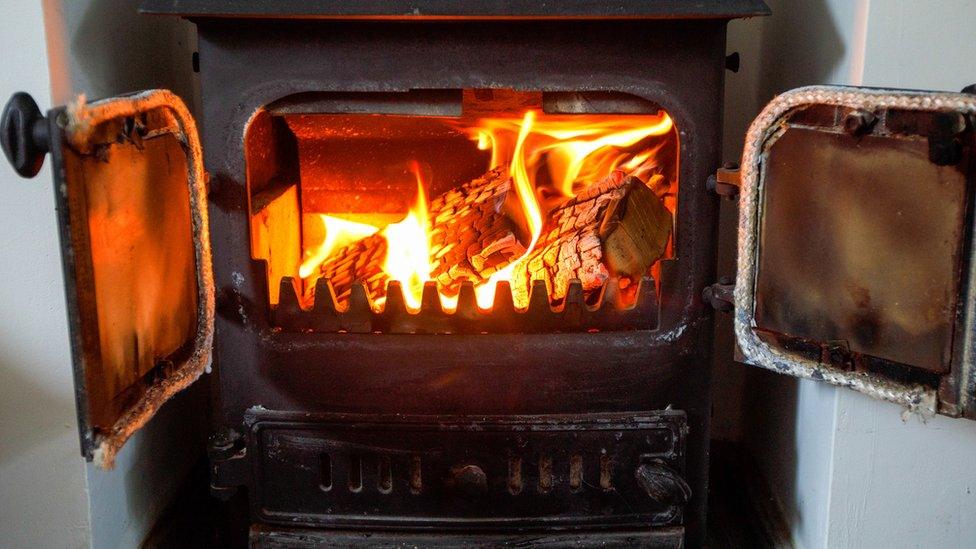
Some rural homes rely on wood burning during power cuts
The regulations have prompted concern from some in rural areas of Scotland who rely on wood burning stoves including during power cuts.
Kate Forbes, the SNP MSP for Skye, Lochaber and Badenoch, said the rules may impact many living in her constituency.
On X, formerly known as Twitter, external, she said she was seeking "urgent clarification" on the new regulations after being contacted by constituents. She said she had concerns for "older residents who rely on them during a time of crippling energy price rises".
An account representing the Inner Hebridean island of Eigg also took to social media, external to say banning wood burning stoves would be a "disaster" for communities like theirs.
It said: "[The stoves] are a key part of our net zero by 2030 strategy. Practical and cheap to fit compared to heat pumps. They provide hot water in winter when solar thermal can't. Island timber harvesting provides local affordable fuel and jobs."
The Scottish government said wood burners can still be installed in new homes where a "need can be justified" following feedback from rural communities.
'Screeching u-turn'
On 28 May, Climate Action Minister Gillian Martin told Holyrood she would adapt the New Build Heat Standard regulations to suit the differing needs of urban and rural areas.
Ms Martin stated that she had been "listening to the concerns raised" and she would look to adapt the legislation to address "issues of inflexibility".
She said: "The outcome of this review will ensure resilience to interruptions of electricity and heating supply, a respect for rural communities cultures and traditions and sustainable systems.
"I want to ensure climate friendly alternatives to direct emissions are promoted in appropriate ways across Scotland with no unintended consequences with regard to fuel poverty and sustainability, particularly in rural communities."
She added that the review would be carried out "in short order".
The Scottish Conservatives described the announcement as a "screeching u-turn" from the government and repeated calls for the ban to be reversed entirely.
Related topics
- Published1 February 2023
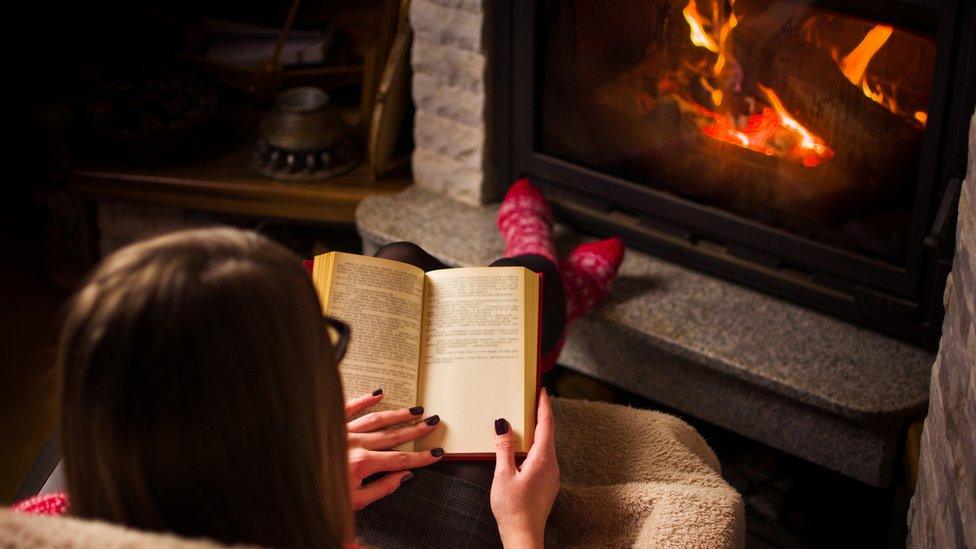
- Published1 February 2024
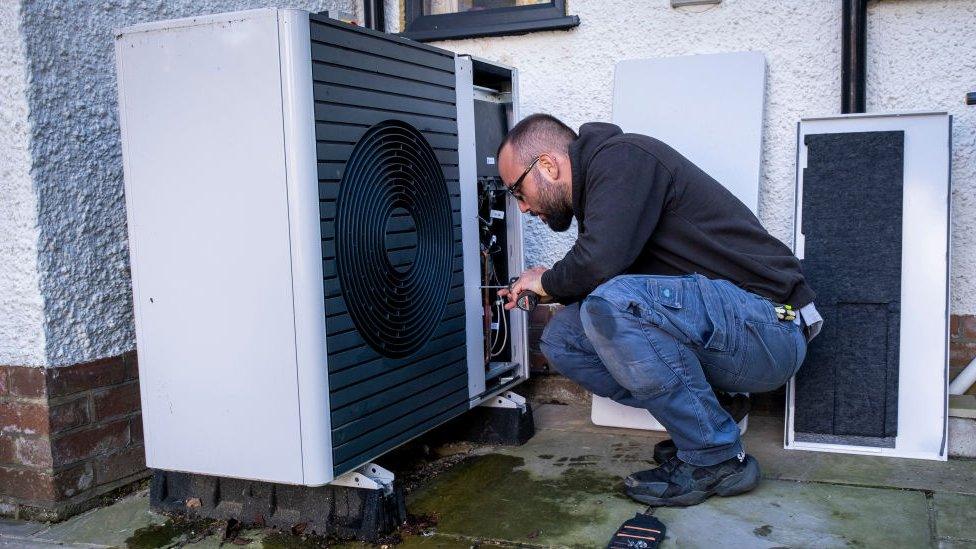
- Published6 February 2021
